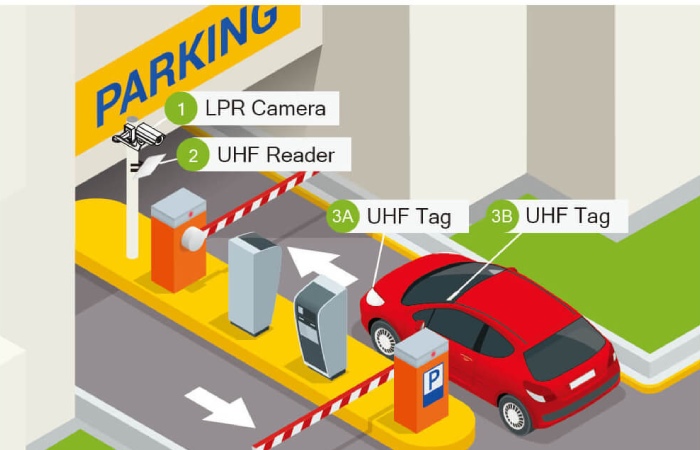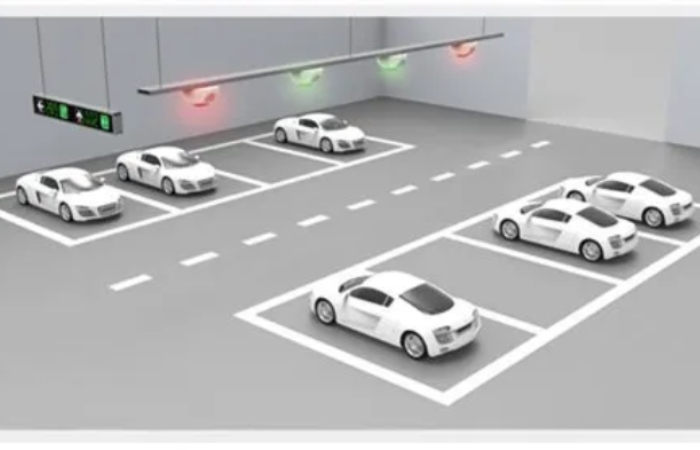Professional Parking Management is the process of overseeing and maintaining parking facilities in a safe, efficient, and customer-friendly manner. It encompasses a wide range of tasks, including – Designing and developing parking facilities, Planning and implementing parking policies and procedures, and many more.
Professional parking managers play a vital role in ensuring that parking facilities are accessible and affordable for all users. They also help to reduce traffic congestion and improve air quality by promoting sustainable parking practices.
Table of Contents
What is Professional Parking Management?

Professional parking management is the process of planning, operating, and maintaining parking facilities and services to meet the needs of users and stakeholders. It is a complex and challenging task that requires a wide range of skills and knowledge, including:
- Transportation planning and engineering
- Urban design
- Real estate development
- Finance and Accounting
- Customer service
- Enforcement
Benefits of Professional Parking Management
There are many benefits to professional parking management, including:
- Increased revenue: Professional parking managers can help to increase revenue from parking facilities by implementing innovative pricing strategies and optimizing parking utilization.
- Reduced costs: Professional parking managers can help to reduce costs associated with parking facilities by implementing efficient maintenance and operational procedures.
- Improved customer service: Professional parking managers can help to improve customer service by providing clear and concise parking information, offering a variety of payment options, and resolving customer issues promptly and courteously.
- Enhanced safety and security: Professional parking managers can help to enhance the safety and security of parking facilities by implementing proper lighting and surveillance systems, training personnel on security procedures, and conducting regular safety inspections.
- Reduced environmental impact: Professional parking managers can help to reduce the environmental impact of parking facilities by promoting sustainable parking practices, such as electric vehicle charging stations and carpool/vanpool incentives.
Key Elements of Professional Parking Management

There are several key elements of professional parking management, including:
- Planning: Professional parking managers begin by developing a comprehensive parking plan that outlines the goals and objectives for the parking facility. The plan should take into account the needs of all users, including employees, visitors, customers, and residents.
- Design: Professional parking managers work with architects and engineers to design and develop parking facilities that are safe, efficient, and user-friendly. The design should consider factors such as traffic flow, parking capacity, and accessibility.
- Operations: Professional parking managers are responsible for the day-to-day operations of parking facilities. This includes managing parking personnel, enforcing parking regulations, and providing customer service.
- Maintenance: Professional parking managers are also responsible for maintaining parking facilities in a safe and presentable condition. This includes tasks such as striping pavement, repairing potholes, and cleaning restrooms.
- Technology: Professional parking managers increasingly rely on technology to improve the efficiency and effectiveness of parking operations. This includes technologies such as automated parking guidance systems, mobile payment apps, and real-time parking information systems.
Importance of Customer Service in Parking Management
Customer service is essential in parking management. Professional parking managers should strive to create a positive parking experience for all users. This includes providing clear and concise parking information, offering a variety of payment options, and resolving customer issues promptly and courteously.
The Role of Technology in Parking Management

Technology is playing an increasingly important role in parking management. Professional parking managers can use technology to improve the efficiency and effectiveness of their operations. For example, automated parking guidance systems can help drivers to find parking spaces more quickly and easily. Mobile payment apps can make it easier for drivers to pay for parking. And real-time parking information systems can help drivers to avoid congested areas.
Sustainable Parking Practices

Professional parking managers can play a role in reducing the environmental impact of parking facilities. There are a number of sustainable parking practices that can be implemented, such as:
- Providing electric vehicle charging stations.
- Offering carpool/vanpool incentives.
- Planting trees and shrubs in parking lots.
- Using recycled materials in parking facility construction.
- The Future of Parking Management
The future of parking management is likely to be shaped by a number of trends, including:
- The rise of autonomous vehicles.
- The increasing popularity of shared mobility services.
- The growing awareness of the need for sustainable transportation solutions.
Professional Parking Management Organizations
There are a number of professional parking management organizations that provide resources and support to parking managers. These organizations include:
- International Parking and Transportation Association (IPTA).
- National Parking Association (NPA).
- Parking Industry Exhibition (PIE).
- American Public Transportation Association (APTA).
- Institute of Transportation Engineers (ITE).
Trends in Professional Parking Management
The professional parking management industry is constantly evolving. Some of the key trends in professional parking management include:
- The rise of smart parking technology: Smart parking technology is being used to improve the efficiency, safety, and customer experience of parking operations. Examples of smart parking technology include parking sensors, guidance systems, and mobile payment apps.
- The growing importance of sustainability: Professional parking managers are increasingly focused on sustainability. This includes initiatives such as installing solar panels at parking facilities, planting trees, and using recycled materials in parking construction.
- The changing role of parking: Parking is no longer just a place to store cars. Professional parking managers are developing new ways to use parking facilities, such as hosting community events and providing charging stations for electric vehicles.
Conclusion
Professional parking management is a complex and challenging field, but it is also a vital one. Professional parking managers play a key role in ensuring that our communities have adequate and efficient parking. They also help to improve the safety and sustainability of parking operations.

